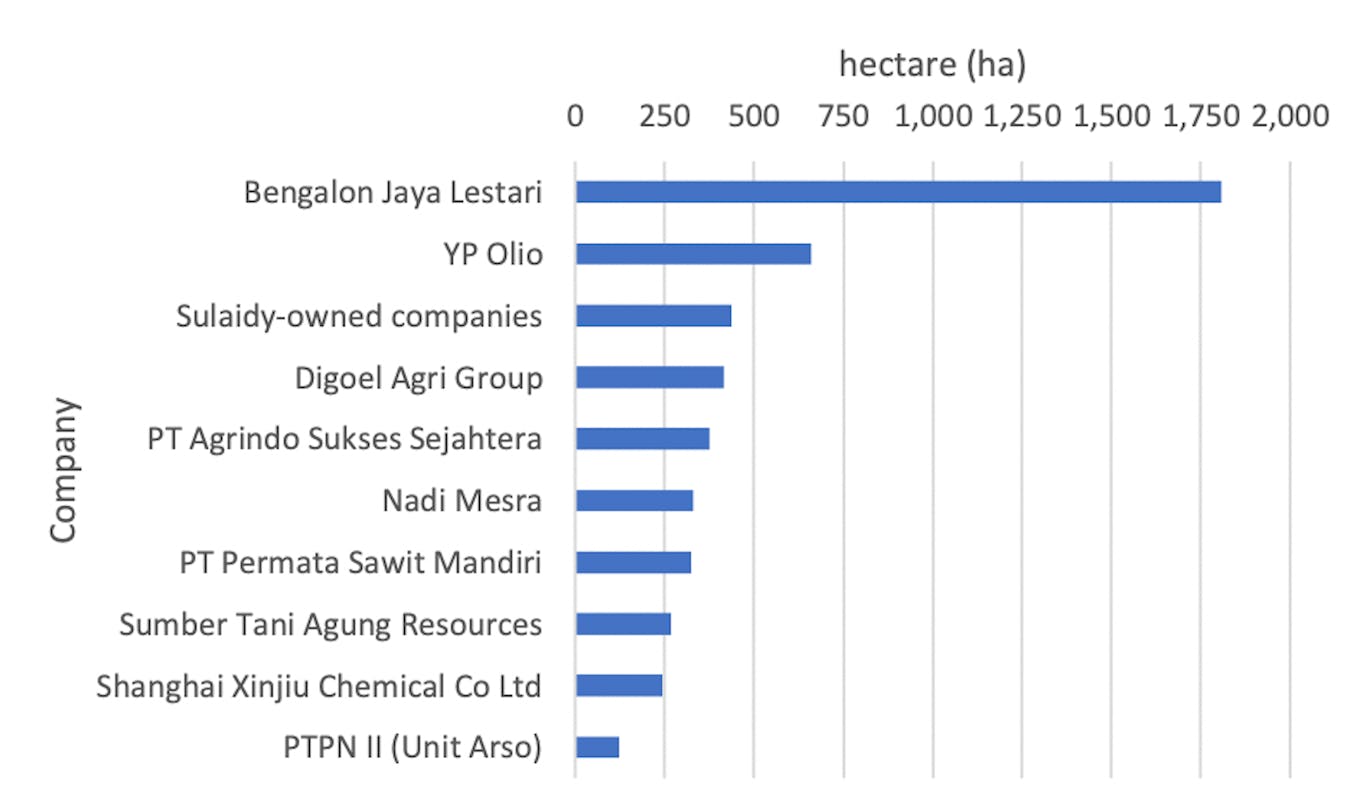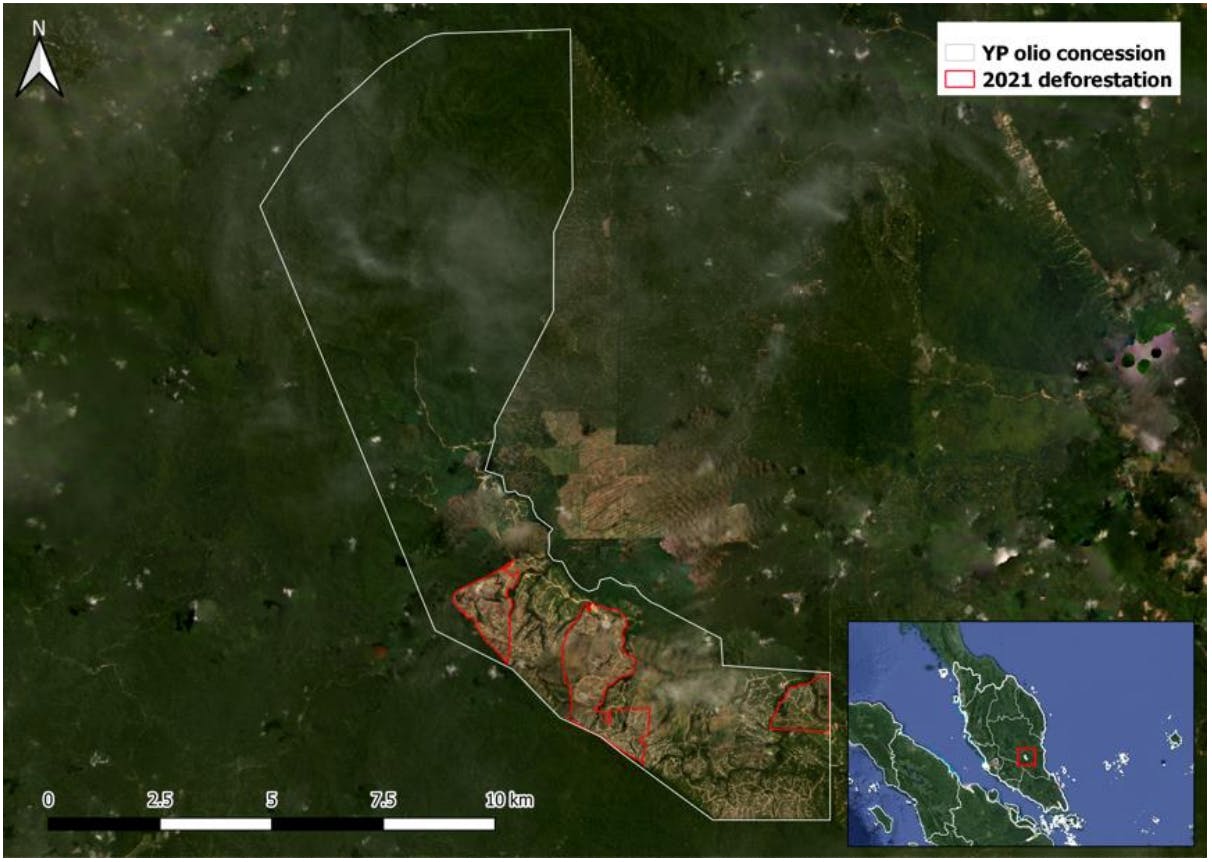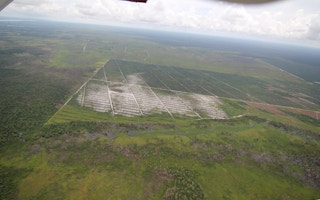The rate of forests bulldozed to make way for palm oil plantations has slowed significantly in the first half of this year, signalling the impact of commitments made by major industry players to weed deforestation out of their supply chains.
Palm oil-related deforestation fell by 42 per cent in the first six months of 2021, year-on-year, with 11,500 hectares of forests lost in Indonesia, Malaysia, and Papua New Guinea, according to satellite analysis published on Monday from Chain Reaction Research (CRR), a risk analysis group. This compares to 19,894 ha in the first half of 2020 and 40,000 ha in the first half of 2019. Indonesia and Malaysia account for 85 per cent of the US$43 billion global trade in palm oil, the world’s most common vegetable oil found in half of all supermarket products.
The biggest tree-felling palm oil firms this year may be looking to sell to Indonesia’s growing domestic biofuels market, with no known ties to the international market for palm oil cultivated free from deforestation, known as the no deforestation, no peat, no exploitation (NDPE) market — which the major consumer goods brands such as Unilever, Colgate-Palmolive and Nestlé buy from. Indonesia’s biofuels sector is particularly vulnerable to deforestation risk due to weak sustainability standards.
The company responsible for the most deforestation so far this year is Bengalon Jaya Lestari, which has cleared 1,800 ha of peatland within its concessions in Kalimantan, the Indonesian part of Borneo. Bengalon Jaya Lestari does not seem to own any mills, so it is difficult to link it with any NDPE supply chains, CRR’s report finds.
Indonesia has had a moratorium on new palm oil permits in place since September 2018 to halt deforestation. Companies monitored by CRR have legal permits to fell trees and clear land, said Chris Wiggs, programme director at Aidenvironment, an environmental research group that produced the study.

The top 10 palm oil deforesters of 2021. Malaysian companies appear on the list for the first time. Source: Chain Reaction Research
Malaysian companies feature on CRR’s ranking of the region’s top deforesters for the first time. The second biggest deforester this year is YP Olio, which cleared 660 ha of forest in Pahang, Peninsular Malaysia, between January and June. The area cleared was once part of Bukit Ibam Forest Reserve, which was degazetted last November. YP Olio is involved in a land conflict with Orang Asli indigenous people, who claim the company misled them into signing a contract supporting plantation development.

Deforestation in YP Olio’s concession highlighted by the red borders. Image: Chain Reaction Research
Six of the other companies in the top 10 are operating in Indonesia, with two in Papua and one in Malaysia. Among them is Malaysian firm Nadi Mesra, which is developing plantations in the recently degazetted Tenggaroh Permanent Reserve Forest in Johor, and Sulaidy, an Indonesian company that controls eight concessions in Kalimantan that was identified as the region’s biggest deforester last year.
CRR’s monitoring in 2020 found that 10 companies were responsible for 58 per cent of forest clearing in Indonesia, Malaysia and Papua for the year — and some were suppliers for large consumer brands with NDPE policies.
The new findings suggest that the NDPE market is helping to reduce the impact of palm oil on forests, but it emerges the week after an investigative report found that the likes of Colgate-Palmolive, Kellogg’s and Nestlé have been buying oil from Malaysian companies linked with labour abuses and deforestation in Papua. These multinationals have said that they are investigating their suppliers, and may remove the companies in question — Rimbunan Hijau and East New Britain Resources Group — out of their supply chains.
A World Wide Fund for Nature study published in September found that efforts by companies to switch to purchasing sustainable palm oil are falling short of what is needed, as buyers continue to source palm oil from suppliers linked to deforestation and human rights abuses.

















